Maine gubernatorial election, 1952
|
|
|
 County results Counties won by Oliver Counties won by Cross |
|
The 1952 Maine gubernatorial election took place on September 8, 1952. Incumbent Republican Governor Frederick G. Payne was term limited and seeking election to the United States Senate, thus did not run. Maine Senate President Burton M. Cross faced off against Democratic challenger, former Congressman James C. Oliver (who served in Congress as a Republican) and Independent Neil Bishop in the general election, easily defeating both men. Burton's election was the ninth consecutive victory for the Republicans in Maine gubernatorial races.

The Republican Party, also referred to as the GOP, is one of the two major political parties in the United States; the other is its historic rival, the Democratic Party.
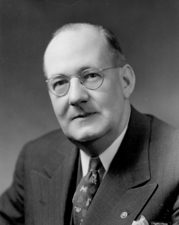
Frederick George Payne was an American businessman and politician. A member of the Republican Party, he served as a U.S. Senator from Maine from 1953 to 1959. He previously served as the 60th Governor of Maine from 1949 to 1952.

The United States Senate is the upper chamber of the United States Congress, which along with the United States House of Representatives—the lower chamber—comprises the legislature of the United States. The Senate chamber is located in the north wing of the Capitol, in Washington, D.C.
The period after the election itself was rather unusual. Cross actually became Governor about two weeks prior to the start of his elected term of office – the outgoing Governor, Frederick G. Payne had resigned on December 25, 1952 to prepare for his term in the United States Senate. Cross, as President of the Senate became Governor through constitutional succession. Cross himself resigned as Senate President (and Governor) at 10:00am January 6, 1953 and was replaced for the next 25 hours by Nathaniel Haskell. At 11:00am on January 7, 1953, Cross' official elected term of office began.
This page is based on this
Wikipedia article Text is available under the
CC BY-SA 4.0 license; additional terms may apply.
Images, videos and audio are available under their respective licenses.

The Governor of California is the head of government of the U.S. state of California. The California Governor is the chief executive of the state government and the commander-in-chief of the California National Guard and the California State Military Reserve.
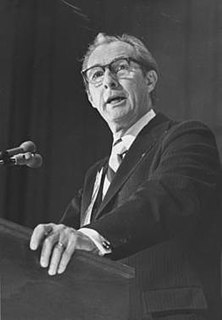
John William Brown was an American Republican politician from Ohio. He briefly served as the 58th Governor of Ohio from January 3, 1957 to January 14, 1957 and served as the 51st and 54th Lieutenant Governor of Ohio.

The Lieutenant Governor and Speaker of the Senate of Tennessee is the presiding officer of the Tennessee Senate and first in line in the succession to the office of Governor of Tennessee in the event of the death, resignation, or removal from office through impeachment and conviction of the Governor of the State of Tennessee.

The 1978 United States Senate elections in the middle of Democratic President Jimmy Carter's term. Thirteen seats changed hands between parties. The Democrats at first lost a net of two seats to the Republicans, and then one more in a special election. Democrats nevertheless retained a 58-41 majority.
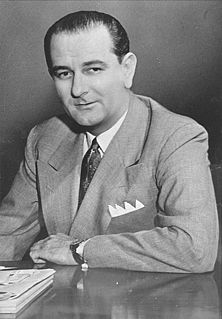
The 1958 United States Senate elections were elections for the United States Senate which occurred in the middle of President Dwight D. Eisenhower's second term. As is common in midterm elections, the party in the White House lost seats, but losses this year were more than usual, perhaps due to the high unemployment of the Recession of 1958. The Eisenhower Administration's position on right-to-work issues galvanized labor unions which supported Democrats. The launch of Sputnik may also have been a factor.
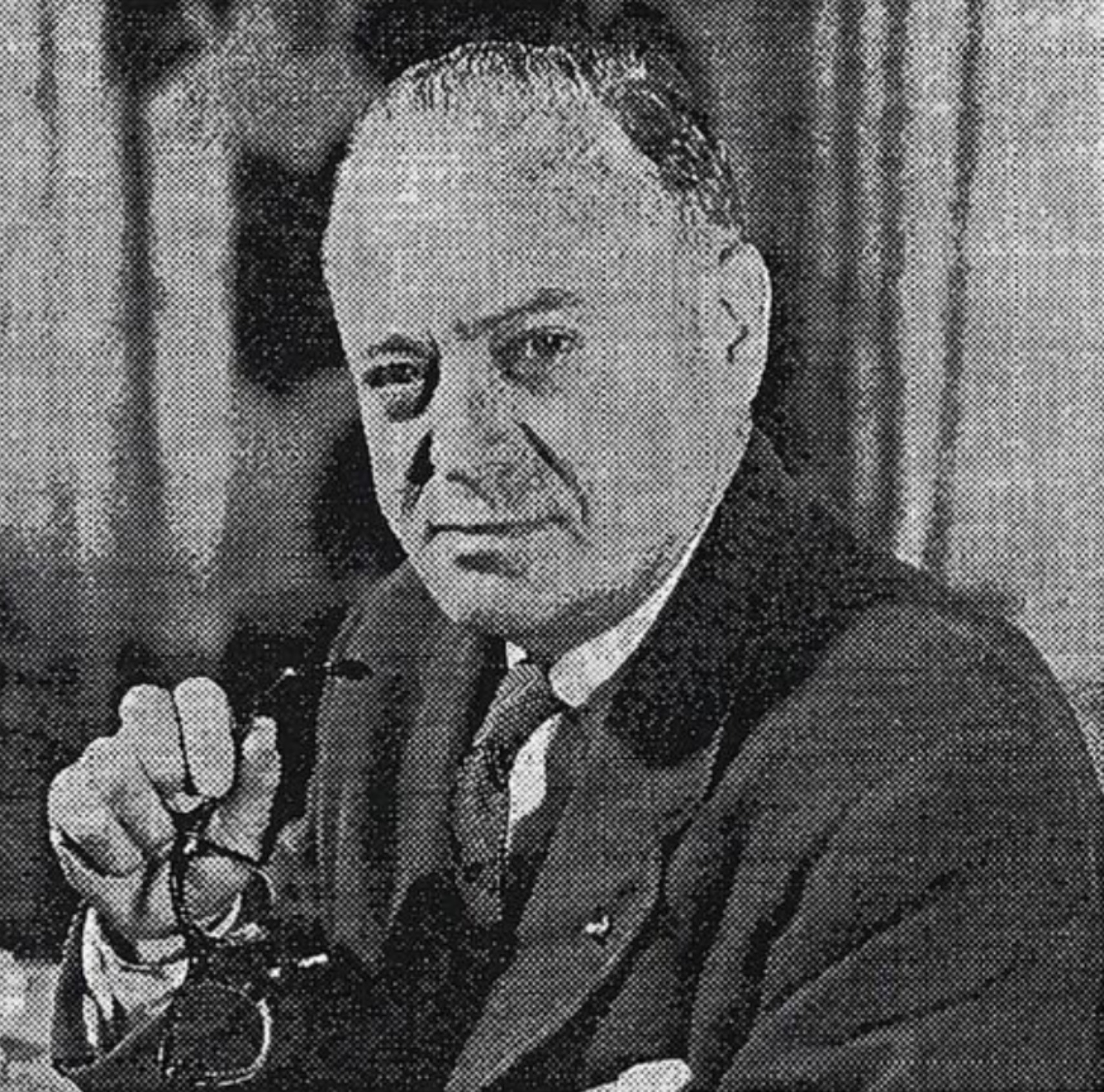
The 1952 United States Senate elections was an election for the United States Senate which coincided with the election of Dwight D. Eisenhower to the presidency by a large margin. The Republicans took control of the senate by managing to make a net gain of two seats, which was reduced to one when Wayne Morse (R-OR) became an independent. The Republicans still held a majority after Morse's switch. This election was the second time in history that the party in power lost their majority and the Senate Majority Leader lost his own re-election bid.

The Maine gubernatorial election of 2006 took place on November 7, 2006. Incumbent Democrat John Baldacci was re-elected to his second term. This was the last time a Democrat won statewide office in Maine until 2018, when Janet Mills won the gubernatorial election over Republican Shawn Moody.
Burton Melvin Cross was a Maine Republican businessman and politician. Cross was Maine's 61st and 63rd Governor
Nathaniel Mervin Haskell was a Maine Republican politician. Haskell served as the 62nd Governor of Maine for 25 hours: from 10:00am on January 6, 1953 to 11:00am on January 7, 1953.
The following table indicates the party of elected officials in the U.S. state of Arkansas:
The following table indicates the party of elected officials in the U.S. state of Colorado:
Illinois is a Democratic stronghold in presidential elections and one of the three largest Democratic states in the nation alongside California and New York. It is one of the most Democratic states in the nation with all state executive offices and both state legislative branches held by Democrats. For most of its history, Illinois was widely considered to be a swing state, voting for the winner of all but two presidential elections in the 20th century. Political party strength in Illinois is highly dependent upon Cook County, and the state's reputation as a blue state rests upon the fact that the majority of its population and political power is concentrated in Chicago, Cook County, and the Chicago metropolitan area. Outside of Chicago, the suburban collar counties continue trending Democratic while downstate Illinois can be considered more conservative with some moderate regions.
The following table indicates the party of elected officials in the U.S. state of Louisiana:
The following table indicates the party of elected officials in the U.S. state of Maine:

The 2011 United States elections were held on Tuesday, November 8. This was an off-year election, in which the only seats up for election in the United States Congress were special elections. There were also four gubernatorial races, including a special election in West Virginia. There were also state legislative elections in four states and judicial elections in three states; as well as numerous citizen initiatives, mayoral races, and a variety of other local offices on the ballot.
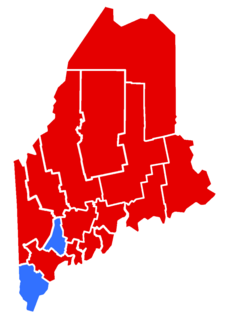
The 1948 Maine gubernatorial election took place on September 13, 1948. Incumbent Republican Governor Horace A. Hildreth, was term limited and seeking election to the United States Senate, thus did not run. Republican mayor of Augusta Frederick G. Payne faced off against Democratic challenger Louis B. Lausier, defeating him in a landslide.

Ralph Owen Brewster was an American politician from Maine. Brewster, a Republican, served as the 54th Governor of Maine from 1925 to 1929, in the U.S. House of Representatives from 1935 to 1941 and in the U.S. Senate from 1941 to 1952. Brewster was a close confidant of Joseph McCarthy of Wisconsin and an antagonist of Howard Hughes.

The 2020 United States elections will be held on Tuesday, November 3, 2020. All 435 seats in the United States House of Representatives, 34 of the 100 seats in the United States Senate, and the office of President of the United States will be contested. Thirteen state and territorial governorships, as well as numerous other state and local elections, will also be contested.
















